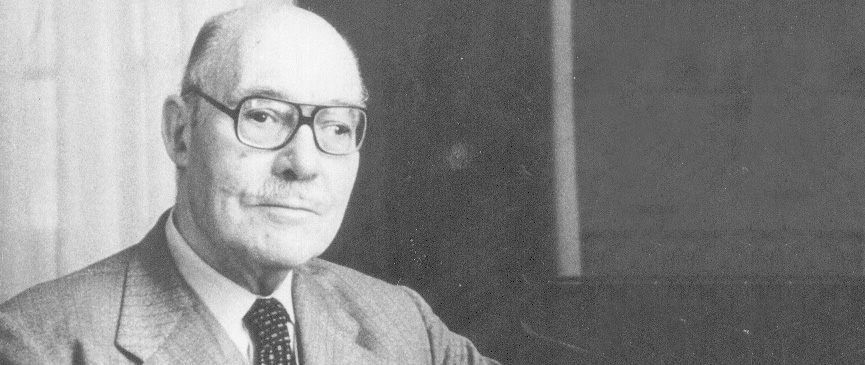You are in:
Laureates
Start of main content
Román Perpiñá Grau
Prince of Asturias Award for Social Sciences 1981

Unanimously recognised as a master among economists, Román Perpiñá Grau (Reus, Tarragona, Spain, 1902 – 1991) has managed to make important contributions to the working of the Spanish economy and has advanced the structural analysis and the study of the spatial dimension of the social and economic structure, not only of Spain, but also of Spanish America.
After finishing his degree in Economics at the University of Deusto, he obtained his degree of Commercial Administrator at the Higher School of Commerce. Thanks to a grant awarded by the Board for Further Studies, he subsequently travelled to Germany, a fact which marks a fundamental milestone in the development of his future research. It was in Germany where, under the direction of Professor Liedman, he wrote his doctoral thesis, based on the study of the phenomenon of concentration of companies. As a consequence of close and prolonged cooperation with Professor Harms, he also delved deeply into matters related to the location of economic activities and, above all, with the process of structuring economic life as a whole.
On his return to Spain, Perpiñá founded what was certainly the first economic study service in our country: the CHADE Seminary for Economic Studies, which was to cooperate closely with Francisco Cambó. Later moving to Valencia, he established and directed the renowned Valencian Centre for Economic Studies from 1930 onwards. In this centre he conceived and wrote his most important and decisive work, with which he would become the true master of all those researchers interested in studying the Spanish economy seriously and in depth, the essay De economía hispana, which saw the light for the first time in the German edition of 1935, with its publication in the economic journal of the Kiel Institute, Weltwirtsches Archiv.
After the Civil War, he moved to Madrid as Counsellor for the National Economy, dedicating himself to preparing various studies of the possessions which at the time Spain had in the Gulf of Guinea, analyzed with such great intellectual rigour that they became keystones for understanding the African economy. His theories on colonization and his research into the field of the partial structure of the population laid the basis for numerous subsequent studies.
Román Perpiñá taught in the Complutense University of Madrid and the Pontifical University of Salamanca, and was the teacher of outstanding Spanish economists, such as Fuentes Quintana, Velarde Fuertes, Tamames and many others.
His great grounding in classical languages led him to handle the texts of the great Greek and Latin writers with exceptional rigour, in order to comprehend, from their vantage point the problems of the behaviour of peoples and, therefore, economic behaviour.
Like the great traveller he was, he also set himself the Spanish-American question. In this regard, his work on Nicaragua is noteworthy, as well as his undoubtable role as the teacher of innumerable scholars from the American continent who assumed and continued with his model.
End of main content
Sección de utilidades
Fin de la sección de utilidades
- Legal document Legal document (Access key 8)
- | Privacy policy Privacy policy (Access key )
- | Social networks ???en.portal.pie.menu107.title???
- | Cookies ???en.portal.pie.menu110.title???
- | Site map Site Map (Access key 3)
- | Contact Contact (Access key )
- | XHTML 1.0
- | CSS 2.1
- | WAI 'AA
© Copyright 2024. FUNDACIÓN PRINCESA DE ASTURIAS



